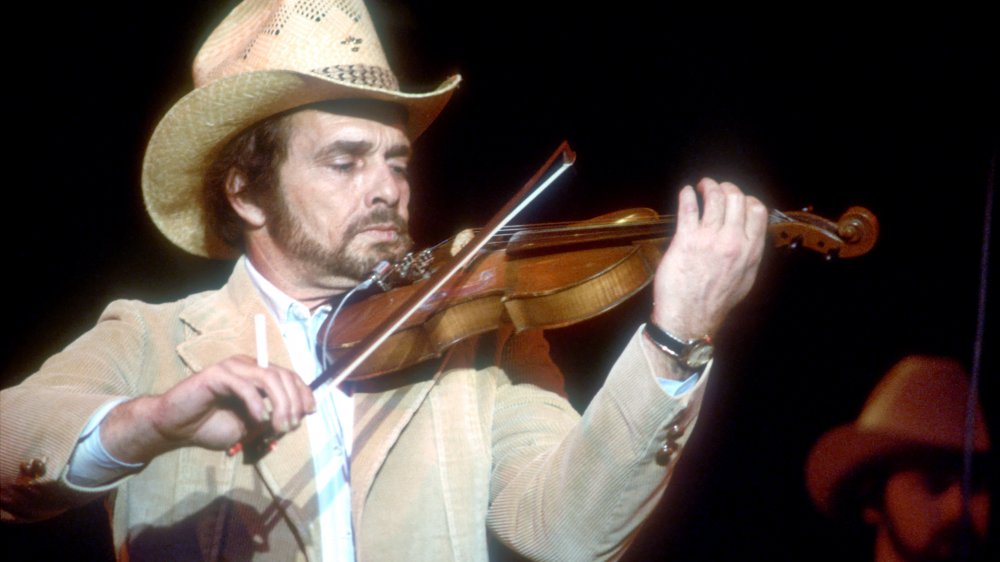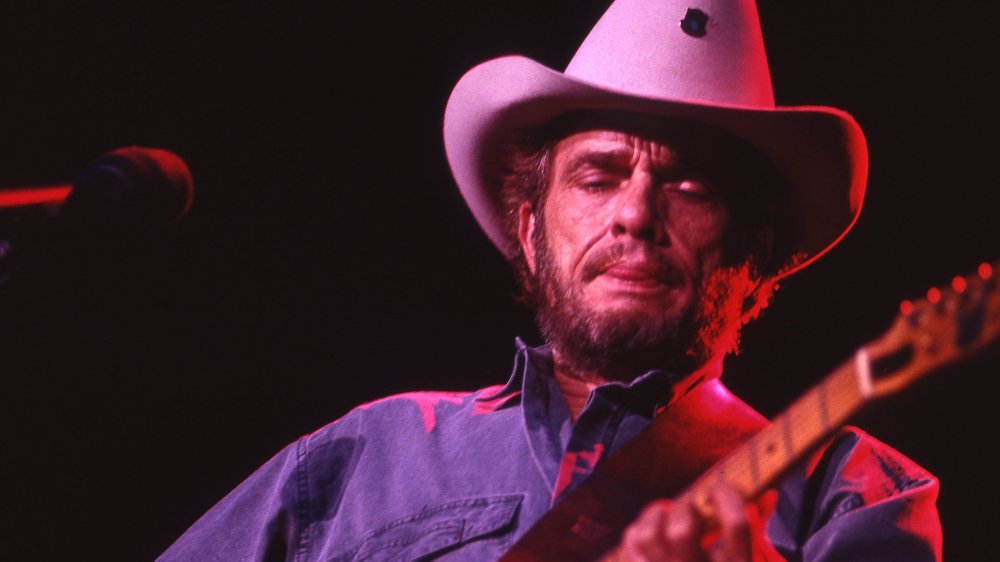Here's How Merle Haggard Lost All His Money
Merle Haggard left quite a legacy when he died in 2016. Along with Buck Owens, he's largely credited with driving what became known as the Bakersfield Sound in Country music — "a twangy, guitar-driven, hard-edged style of country that provided an alternative to the increasingly smooth, commercial music being made in Nashville in the 1950s and '60s," as The Atlantic wrote in his obituary. Wide Open Country reminds us of that fateful concert he took in while incarcerated — Johnny Cash at San Quentin Prison, inspiring Haggard to turn his life around and concentrate on music instead of crime.
That career trajectory brought Haggard into the recording studio, producing a string of genre-bending tracks, 38 #1 Country songs, and earning Willie Nelson's admiration: "one of the best." President Ronald Reagan called his music "the heart and soul of America."
But there were also personal challenges. There were drugs here and there, and he became a fan of marijuana in his 40s. What probably torpedoed any hopes of a steadily increasing retirement nest was Haggard's serial monogamy, marrying a total of five times. As Rolling Stone quoted him, "Johnny Carson and I were spending more money on spousal support in the 1980s than any other Americans." In 1992, as the Orlando Sentinel reported, Haggard filed for Chapter 11 bankruptcy protection.
He worked his way out of bankruptcy
The self-styled "Okie from Muskogee" also stepped up during the George W. Bush presidency to defend none other than The Dixie Chicks (now known as The Chicks, according to CNN), whose criticism of the president's policies brought down the wrath of more conservative country music outlets, knocking their tunes out of airplay. "Because they don't like George Bush, should we take their records off? I really found that sort of scary," he told Rolling Stone in 2003. "Are we afraid of criticism? And if so, why? It seems to me, we're guilty in this country of doing everything we've always opposed all my life. ... (T)hat's really not the America I'm used to."
Eventually he straightened out financially. He continued to tour until the very end, pushing back against age and a changing country music scene. After a lifetime of fighting his own demons, and stepping up on behalf of others, in the end, he fought a battle he couldn't win — pneumonia, which took his life, age 79, on April 6 — his birthday.

